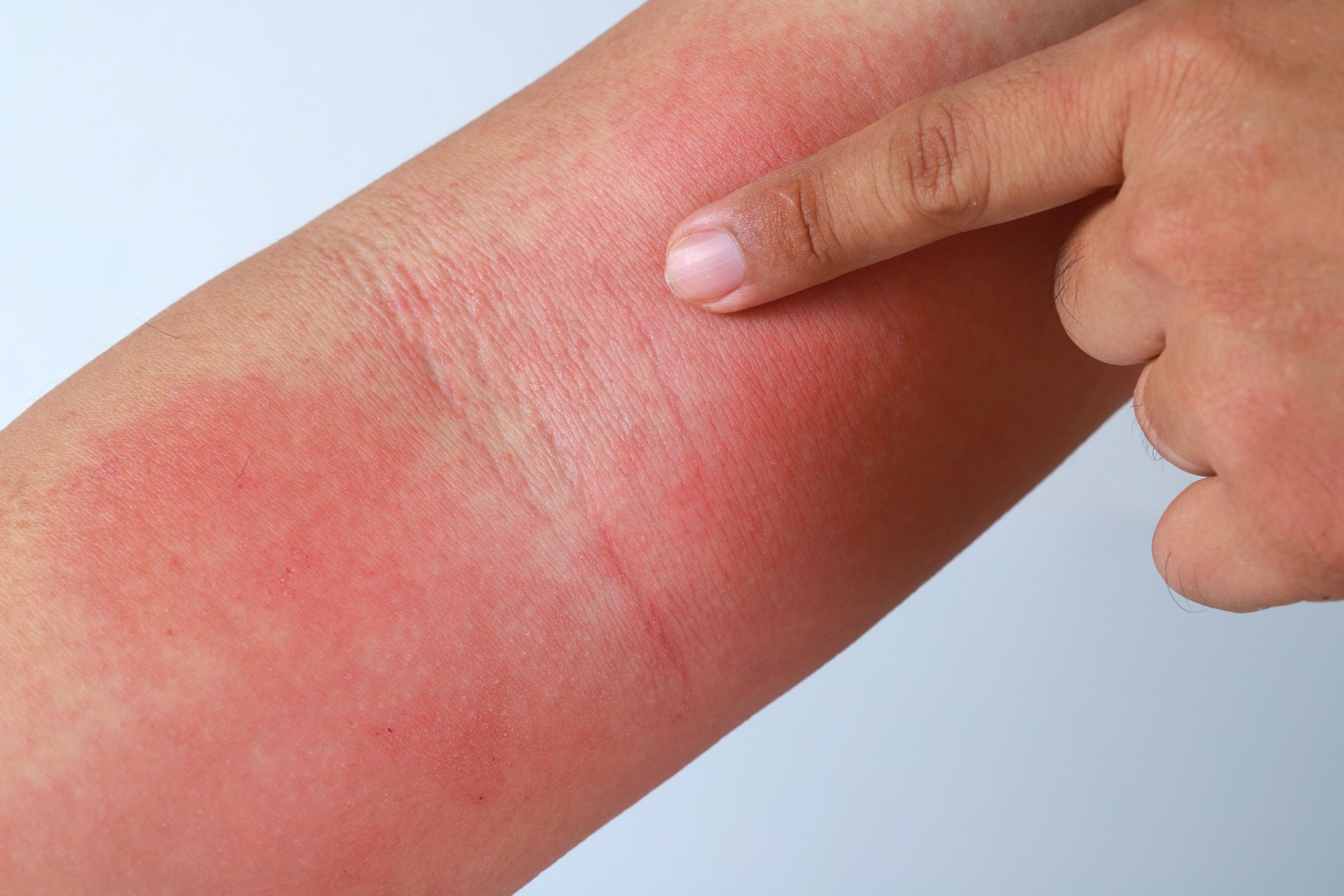
Medically Reviewed by Dr. Lee Hwee Chyen
MBBS MRCP (UK) FAMS (Dermatology)

Eczema, also known as atopic dermatitis, is a chronic, inflammatory skin condition characterised by itchy, red, and dry skin. It is most common in young children but can affect people of all ages. The condition occurs due to an overactive immune system and dysfunctional skin barrier.
There is currently no cure for eczema, but treatments can manage symptoms and reduce flare-ups.
Eczema flare-ups can be caused by a broad range of triggers. Identifying and avoiding these triggers can significantly reduce the frequency and severity of flare-ups.
Understanding the individual’s specific triggers is a key step in managing eczema effectively.
Many wonder whether eczema can resolve without treatment. The answer is largely dependent on the individual’s type of eczema, age, environmental factors, and overall health status. People with mild eczema may notice their symptoms improve as they age. For some, childhood eczema completely resolves by adulthood.
In most cases, eczema is a chronic condition. For many individuals, particularly those with severe or persistent forms of the disease, symptoms may lessen but not completely go away. Even between flare-ups, the skin may remain dry and easily irritated.
There are also instances, where patients experience periods of remission where the skin stays clear of eczema. These periods can last for weeks, months, or even years. Nonetheless, a trigger could potentially cause symptoms to return at any time.

While individual experiences with eczema vary significantly, several factors can influence the progression and healing of the condition.
Understanding these factors can help individuals and their dermatologists devise strategies tailored specifically to them to manage and control eczema better.

Stress is a well-documented trigger for eczema flare-ups; however, the relationship between both is complex.
Eczema itself can cause significant stress and anxiety due to persistent discomfort and concern over the appearance of the skin. This stress, in turn, can trigger an eczema flare-up, establishing a vicious cycle that can be challenging to break.
Furthermore, stress can lead to behaviours such as scratching that can worsen eczema. Stress-management techniques including relaxation exercises, mindfulness, and counselling can help break this cycle, assisting in better management of eczema.
Managing stress can prove beneficial but not a substitute for a comprehensive treatment plan for eczema.
Consult a dermatologist specialising in eczema in the following circumstances:
Your dermatologist can help identify the cause of the symptoms and recommend a personalised treatment plan based on your health and lifestyle. Eczema can be managed successfully when treated early and effectively, improving quality of life and reducing discomfort.
Eczema affects individuals worldwide and can significantly impact daily life. Read on to learn more about common triggers for eczema flare-ups, and strategies and treatments that may help manage these flare-ups.
Paediatric skin conditions may appear as rashes, discolouration, bumps or dry skin and may occur anywhere on your child's body. Learn more about these conditions here.
Feel free to drop by our our clinic and meet our specialist
101 Irrawaddy Road #16-09
Royal Square at Novena, Singapore 329565
 +65 8701 7662 (WhatsApp Enquiries Only)
+65 8701 7662 (WhatsApp Enquiries Only)
Mon - Fri (09:00am - 05:30pm)
Sat (09:00am - 1:00pm)
Sun & Public Holidays (Closed)